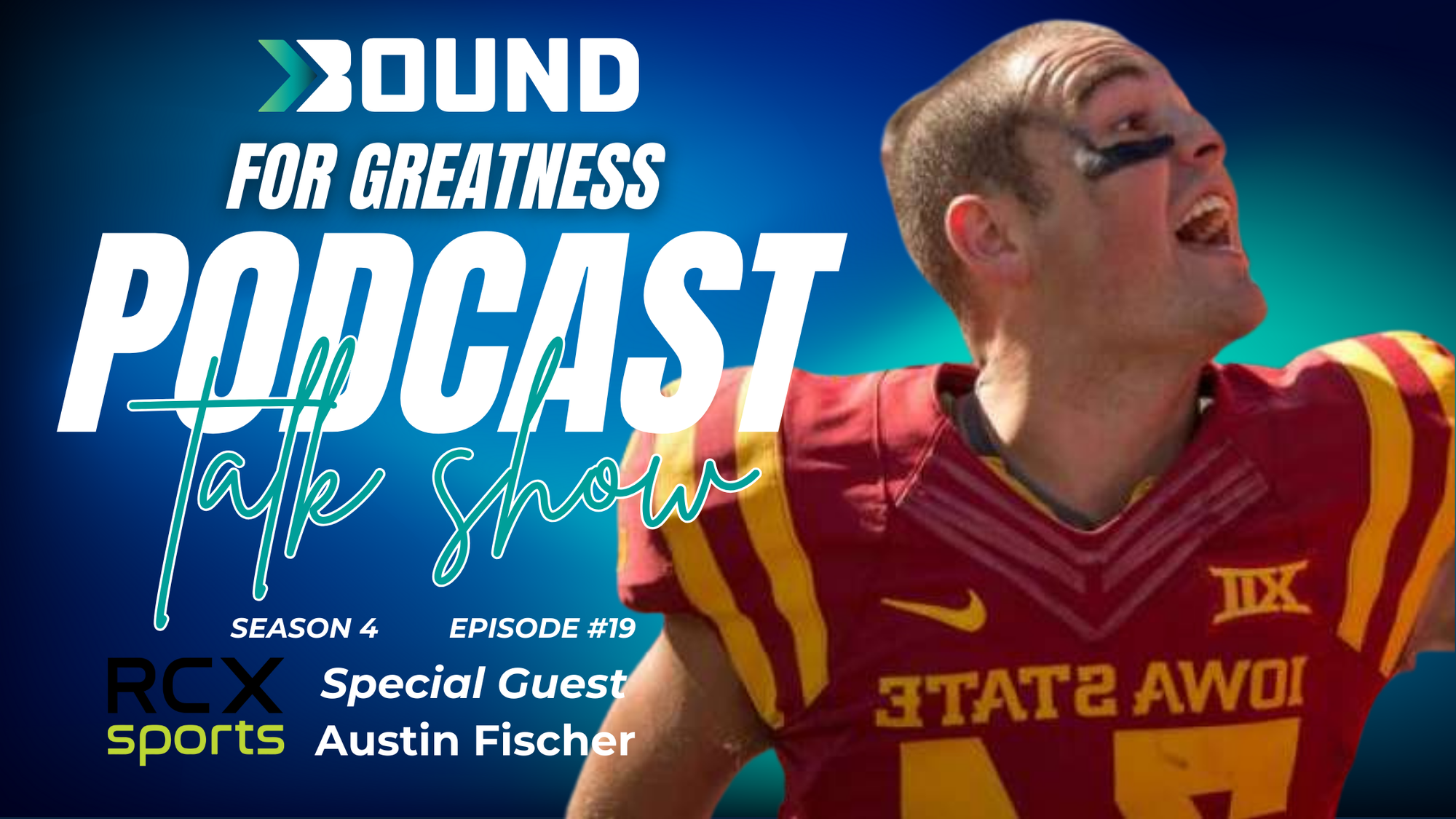Breaking the Myth | The Cost of Specialization in Youth Sports

In today's youth sports landscape, the conversation around sport specialization has reached a fever pitch. Parents, coaches, and young athletes alike grapple with the idea of committing to a single sport early in the hopes of securing a college scholarship, a professional career, or simply keeping up with their peers. However, as Austin Fischer, Director of Baseball and Softball at RCX Sports, highlighted in his conversation on the Bound for Greatness podcast, the benefits of being a multi-sport athlete far outweigh the perceived advantages of early specialization.
The Myth of Sport Specialization
More and more, young athletes are being pushed toward a single sport, sometimes as early as eight or nine years old. The assumption is that year-round training and competition will lead to better skill development, higher levels of play, and increased recruitment opportunities. But, as Fischer notes, there is no scientific evidence suggesting that early specialization leads to long-term athletic success. In fact, research overwhelmingly supports the idea that multi-sport participation fosters greater overall athletic development, reduces injury risk, and promotes mental well-being.
"There are a million studies saying, 'Hey, be as involved as possible,'" Fischer says. "If you look at the most successful athletes, many of them didn't specialize early. Instead, they developed skills in multiple sports that helped them excel later."
The Case for Multi-Sport Participation
Fischer himself was a multi-sport athlete growing up in Ankeny, Iowa, playing football, basketball, baseball, and running track. His experience not only made him a well-rounded competitor but also opened doors at the collegiate level. He recalls how Iowa State head football coach Paul Rhoads recruited him for his versatility, inviting him to contribute on special teams while continuing to develop as an athlete.
College coaches across multiple sports echo this sentiment. Kirk Ferentz, head football coach at the University of Iowa, has a well-documented preference for recruiting wrestlers as offensive linemen due to the balance, leverage, and mental toughness they develop on the mat. Similarly, baseball and football crossovers, like NFL MVP Patrick Mahomes, show how skills transfer between sports.
"Out of the 32 starting quarterbacks in the NFL, all have a baseball background," Fischer notes. "Roughly half of them were drafted into Major League Baseball. The skill set is transferable."
Injury Prevention and Mental Health Benefits
One of the most compelling arguments against early specialization is the increased risk of overuse injuries. Playing one sport year-round places repetitive stress on specific muscle groups, tendons, and joints, leading to chronic injuries. Conversely, multi-sport participation allows athletes to develop different muscle groups, improve flexibility, and reduce the strain on overworked areas.
Beyond the physical benefits, there’s a crucial mental health component to consider. Specialization often leads to burnout, anxiety, and excessive pressure on young athletes. The drive to excel in one sport can take away the joy of play and turn sports into a job rather than an outlet for fun and personal growth.
"Kids today aren’t playing sports the way we did," says Bound for Greatness host Scott Garvis. "We used to grab a ball and just go play for fun. Now, youth sports have become a multi-billion-dollar industry, and the focus has shifted from enjoyment to business."
The Role of RCX Sports in Promoting Multi-Sport Development
RCX Sports, where Fischer currently serves as Director of Baseball and Softball, is working to counteract the trend of early specialization by making sports more accessible and enjoyable for all kids. Through initiatives like Pitch, Hit, and Run—a free skills competition backed by Major League Baseball—RCX provides opportunities for kids to engage in baseball and softball without the financial or time constraints of travel ball.
"We’re creating pathways for young athletes to be exposed to different sports," Fischer explains. "The goal is to keep kids engaged, learning, and having fun rather than locking them into one sport too soon."
A Call to Action: Encouraging a Holistic Approach
As parents and coaches navigate the complex world of youth sports, Fischer’s advice is clear: do your research, seek out credible sources, and prioritize your child’s overall development over the promise of future success in one sport.
"If you truly look at the data, you'll come to the conclusion that your kid should be more involved, not less," Fischer asserts. "Whether it’s sports, arts, or other activities, giving kids diverse experiences will make them better athletes and better people."
As the conversation around youth sports continues, one thing is certain: fostering multi-sport participation isn’t just about building better athletes—it’s about creating healthier, happier, and more resilient young individuals who will carry the lessons of competition and teamwork far beyond the playing field.
Final Thoughts: Keeping Sports Fun and Accessible
At its core, sports should be about enjoyment, development, and community. As the landscape of youth sports continues to evolve, it’s crucial to keep perspective on what truly matters—helping kids develop a love for the game, form lasting relationships, and grow both as athletes and individuals.
"Sport is supposed to be fun," Garvis reminds us. "It’s about more than scholarships and trophies. It’s about teaching life lessons, building character, and ensuring that every kid has the chance to participate."
Through continued advocacy for multi-sport participation and initiatives like those led by RCX Sports, there’s hope that the youth sports culture can shift back toward its roots—where kids play because they love it, not because they feel they have to.


Lead More & Manage Less in your role as an Athletic Director with Bound – the ultimate platform designed to support and assist athletic administrators with software and services backed by experiences athletic leaders. Built by AD's Just like You, Bound revolutionizes athletic administration, streamlining tasks and unlocking more time for strategic leadership. Click on the button below to discover how Bound is transforming the game. Elevate your game with Bound!
